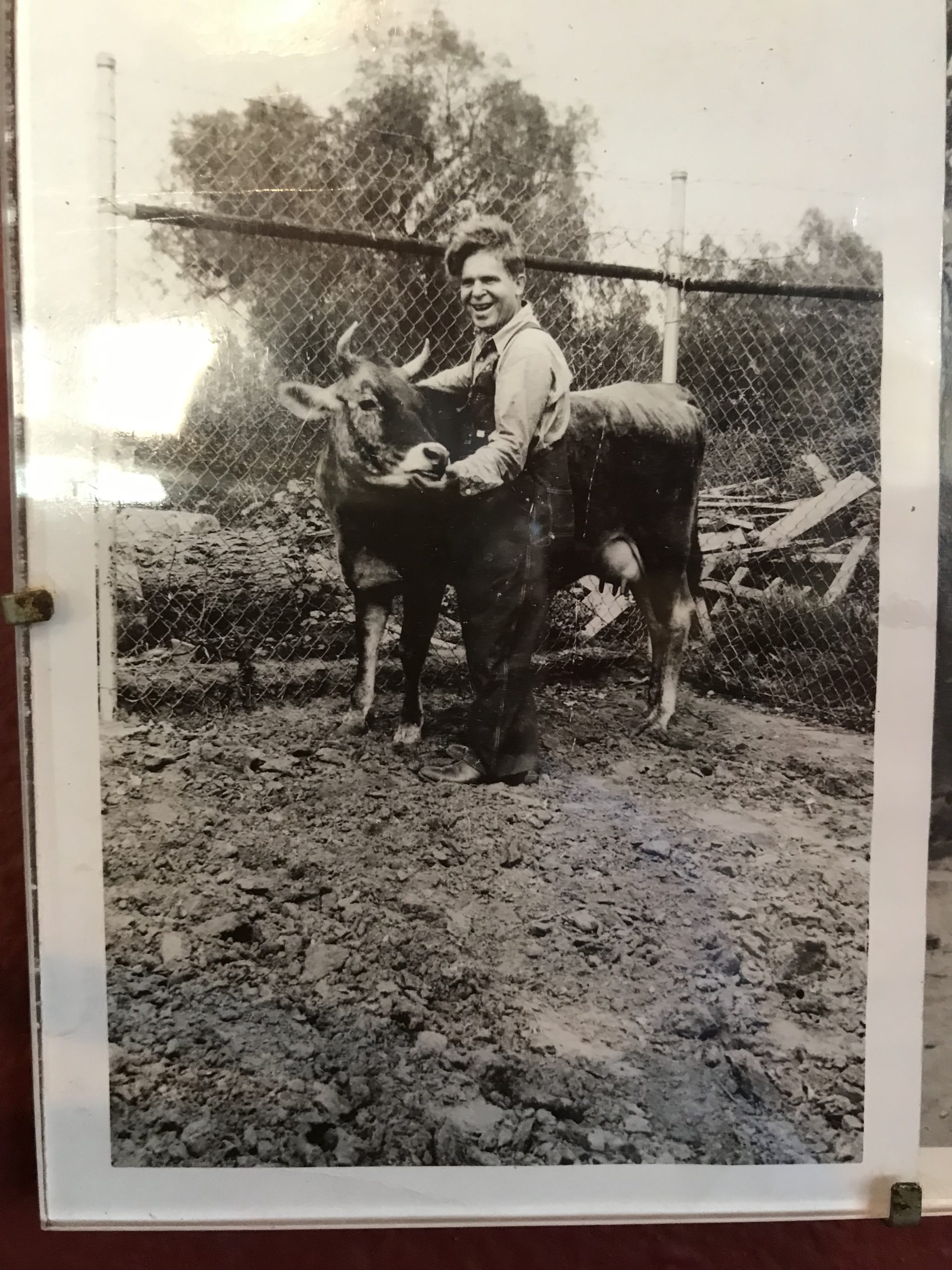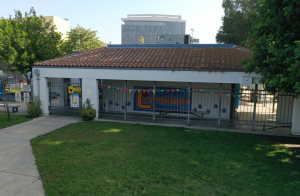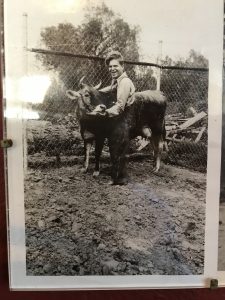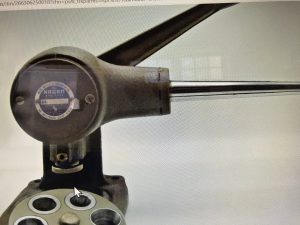
“Don’t talk about your family’s history. Don’t invite trouble.” This was the command from my mother when I was in elementary school. The class assignment was to speak about our family background. The kids awkwardly told stories about the origins of their grandparents in Ohio or somewhere in California, and then moved to their home in North Hollywood. The stories were antiseptic, hagiographic, and very American. I had to edit my immigrant history, so it sounded like I came from the Midwest.
I was in Lankershim Elementary School from 1943-1948. As I learned much later, and not through my elementary school years, Lankershim was named after the first major landowner of the San Fernando Valley in the mid-1880s. He later sold sections of the area which after WW1 became developed into five-acre plots for small farms and households. After WW2, suburban real-estate development sold off smaller plots. The area was red lined to prevent minorities such as blacks and Hispanics from buying homes, attending schools, or creating businesses. This situation became illegal in the late 1960s, about the time I graduated with a Ph.D.
In 1941, my father moved from Berendo St. in the newly Jewish section of Los Angeles into the San Fernando Valley. We had an older five-acre plot with a large Spanish-style home with a tiled roof, a second-story sun deck over a patio, and orchards of apricot, peach, lemon, and avocado trees. My father was a diamond jeweler who specialized in rings. He feared that the War would decrease his business. He asked, “Who would have money or interest to buy jewels and expensive ornaments?” So, he developed a victory garden and well-stocked our ranch with fowls—chickens, pheasants, pigeons, turkeys, and ducks –to provide us with a pantry of vegetables, eggs, meat, and, of course in line with his family background restaurant ownership in Poland, chicken feet. We topped up our farm population with a cow!
The jewelry business unexpectedly not only surprisingly grew but was an astounding success. Our house reflected this wealth with two large bedrooms, an inviting master bedroom, an entertainment room with wooden beamed ceilings over a standard Steinway piano, and a generously large phonograph radio set. The kitchen was large enough that every morning I could listen to the popular radio program, The Breakfast Club played loud muscular music daily under the heading of “March Around the Breakfast Table” which stirred up my screams and the waving of my arms. The dining room spaced a table that sat over sixteen people. Naturally, this house was designed with a service quarter that accommodated a bedroom for a maid/nanny and gardener.
I, of course, did not describe any of these details to my class. Nor did I relate to any of my family’s past. The main reason for the curtain over my past was that it was of a Jewish immigrant family from Poland and Ukraine who spoke Russian! The consequence of betraying these origins would identify us with Russia creating the stigma we were Jewish Communists. And even worse my mother was both! And our family WAS associated with communists whether real or just sympathizers of the Soviet Union or the socialist support of labor.
Discovery of indirect family relationship with a Russian spy
One of the most remarkable discoveries of my dive into family history is the connection between my mother and a close friend with a secret (from me) history.
My mother, Rose, never told me stories of my family’s or grandparents’ childhood or her political and social life. It was only when her granddaughter transcribed Rose’s autobiography in the last years of her life that I became aware of what she did not share. Or maybe, I just did not show much curiosity. She did not want me to share my family history with the neighbors. When I turned 10 years old, she forbade me from speaking Russian.
This is the story of one of our frequent guests to our home on Weddington St. (1941-49) which relates to the basis for her fears.
Archie Silvermaster, a quiet but thoughtful man, appeared for dinner and Jewish holidays. He was friendly but enigmatic. He liked classical music. He was a jeweler like my father, or a mechanical engineer who helped design my father’s ring sizers.
I had heard rumors that his brother, Nathan Silvermaster worked in the Roosevelt administration in an economic post. There was also a rarely spoken suggestion that he was a spy.
While writing about my mother and father, I took the opportunity to run to find the truth of this rumor. It turned out that Nathan and his brother were Ukrainians from Odessa, born in the 1890s. They eventually emigrated to the U.S. passing through China long enough to learn Chinese. My father told me that Nathan had lived in Harbin which was a large center for European Jews and White Russians. His English skills must have been impressive. Upon coming to America, he eventually went to UC Berkeley where he received a Ph.D. in economics with a thesis on Lenin’s economic policies. He was hired in DC as an economic analyst. Near the end of the war, he was accused of transmitting classified documents to the Soviet Union.
I always wondered if Archie Silvermaster was Nathan’s brother. Through studying Nathan’s treasonous behavior, I learned that he did indeed have a brother in Los Angeles named Arkady. I looked up the Russian name “Arkady” to find to my delight that it was a variation of the name Archibald which was often shortened to Archie. Furthermore, the etymology of the name fits well with the Odessa background. This city had a very strong Greek culture. Arkady was a name of old Greek origin that passed through German to Russian. It would be obvious that Arkady Silvermaster modified his name to Archie to avoid his identity as a Russian. In Los Angeles, he just seemed like another Irishman with a funny accent! This may be the reason he appeared to me to be reticent. He did not want to expose his accent. Or his past.
And so, neither did my mother or me. Until now.
One of the most remarkable discoveries of my dive into family history is the connection between my mother and a close friend with a secret (from me) history.






My favorite ‘Archie’ was Rex Stout’s Archie Goodwin’.
Yes, no one ever thinks of “Archie” being a Russian name. “Goodman” sounds like a Jewish name. Was his original first name Arkady?
I wish my mother named me Arkady rather than Dick. But in the 60’s, telling people I had a Russian name would have made me suspicious to many people.
Thanx Richard for sharing your very personal story.
Growing up in New York I had many friends whose parents and/or grandparents were immigrant East European Jews like mine. and it was not a thing we hid or even tried to hide.
Your story was certainly different, and it must have been confusing or upsetting for you as a kid to understand your mother’s concerns.
In Los Angeles we were very involved in theatre. Most of the Hollywood 10 were are friends. Arkin was one of the dismissed teachers from the LA schools. We attended socialist summer camps. My mother was friends with Linus Pauling. None of these associations were publicized.
Such an interesting background, Richard. My grandfather was in the jewelry business in Toledo, OH, having escaped the pogroms in Lithuania (still part of Russia) in 1906 with his wife and 2 of his 4 children. The two youngest (including my mother) were born after they arrived in this country. I know we have discussed this outside of Retro, but it does make interesting reading.
Betsy: Henry Margolin, a wealthy jeweler in New York, was my father’s friend and supporter. He helped financially. He was my “uncle.”
He had extensive financial connections in So. Africa, Puerto Rico, and America. I am not sure, but I presume he was Lithuanian. Or not. In any case he gave my father entry into the very closed jeweler’s market in NY. His son or grandson became an officer in the Metropolitan Museum of Art. (Chair? President?) When I was five he sent us a sled. I am sure he did not know there was no snow in Los Angeles.
You have such wonderful stories Richard. Thanks for sharing them: farms in the Valley, the jewelry biz, Eastern European immigrant Jews and communists. No wonder your mother held her cards close, and how great that she told her story before she died. It would have been interesting to have a chat with her today. Given all the anticommunism of the forties and fifties, it astounds me how the Republicans are so pro-Russia these days–even though it has changed, I would have thought the stigma would have persisted.
What a fascinating dive into the partly and fully remembered, and things that had to be dug up and guessed at. Whom did your family know about the Hollywood 10? Dalton Trumbo? Herbert Biberman? People like Dorothy Healey (not in Hollywood but in the California C.P.). Did they also know Marilyn Monroe? I read very good things about her being one of the few who wasn’t afraid of the FBI,.
IN an earlier decade, my mother wasn’t allowed to tell her classmates in Toledo, Ohio–when the kids would cast ballots for President–that her family was voting for William Z. Foster.
I bet you would enjoy that story that preceded your arrival to Retro. https://www.myretrospect.com/stories/joeys-button/
I read your button prompt with great excitement. I could respond with many pages but will limit my remarks to a few topics without a full narrative
Your description of your get-togethers at home was nearly identical to mine. At Passover in particular, we had great discussions with families and friends,
Russian dancing, Yiddish humor and songs, and just great banter.
Unlike your grandfather, I liked Kerensky and Trotsky. In fact, my Ph.D was a biography of the founder of Chinese Trotskyism. I was known as the pioneer in such studies.
I taught a year at Grinnel in the position of Chinese studies and Jewish advisor.
I did not like the Beatles at first. I did not want to leave Josh White and Pete Seeger. Bob Dylan’s song about the lynching in Duluth is one I refer to often since I live three hours away in Dent/St. Paul Minnesota.
My brother had been fired as a psychiatrist in a Children’s mental hospital because he was unwilling to enforce the punishments and restrictions. He later became a famous socialist in Los Angeles where he heard sad stories from actors, political leaders, and workers. I organized and spoke at his memorial service for over 200 people, including Tom Hayden et al.
Genug.
Richard
PS Familiar with Thomas Mann but not MM. Among others.
A very interesting family history! BTW, please speak more loudly when you are running the dishwasher.
Also, I was struck by the sentence “passing through China long enough to learn Chinese.” For me that would require a stay of about fifty years.
I never knew he was called Archie. Actually, I never knew Arkady at all. I did know his sister Pauline and his daughter Sima. They were my father’s mother and cousin, my grandmother and first cousin once removed. Therefore Archie was my great uncle as were his two brothers, Gregory and Leon.
The last thing I expected when I Googled Arkady Silvermaster, was a wistful introduction through the curious memories of a child recalling an
occasional dinner guest. Richard, your story, rich in detail about L.A., and Jewish immigrant identity in the shadow of Soviet communism, provides so much context for your presentation of the “enigmatic” Archie. I find the questions posed by your story a satisfying substitute for any answers I was looking for. I don’t suppose you recall the conversations, but did Archie bring his wife Anna, his daughter Sima, or his mother Miriam to your home? Thank you.
I am sorry. I remember very little of Archie. He was at our home many times for dinner. He and my father and mother spoke in Russian. I think I remember the name Sima. He was quiet and very cautious telling me not to hold my breath too much because it could affect my heart.
The connection was the very private story of his brother. This intrigued me.. I did not know then that my mother professed to be a communist. She hated the Germans! She placed me in Charlie Chaplain socialist preschool, and we spent a summer in a socialist gathering in Taos New Mexico that was said had more FBI members than real campers. For many years I had a positive view of the Soviet Union. I knew about Marx, Stalin, and Lenin (somewhat). My Ph.D. thesis was on the founder of the Communist Party in China who later founded the Trotskyist Party. (I approved of his move toward Trotsky. He did suffer reprisals from both the Communist Party and the KMT for his political beliefs. He also appealed to me for his academic and journalistic career. He also wrote poetry.
Hello Richard, while organizing files in the middle of a remodel, I just came across some of Arkady’s patent information including a ring expander which references your father. https://photos.app.goo.gl/3DZnkJFHG5425EeFA